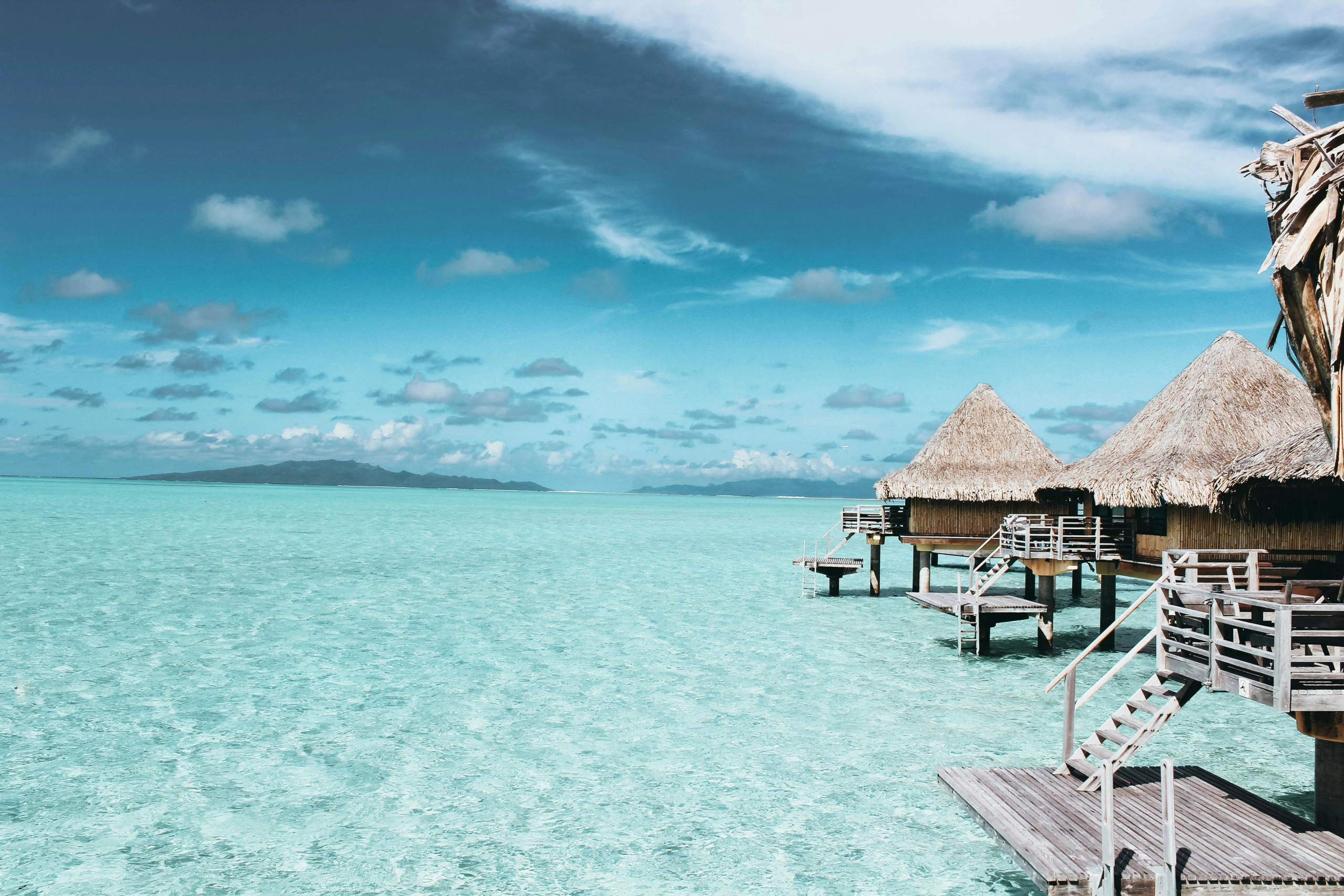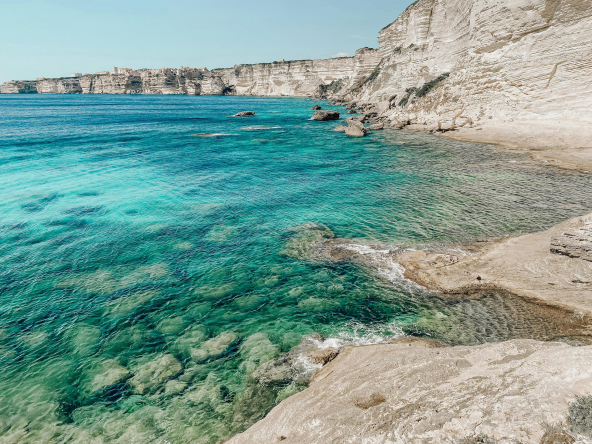Buying a Luxury Hotel in Tahiti: Attracting a Global Affluent Clientele
Discover how investing in a luxury hotel in Tahiti can generate significant income by catering to a global high-end clientele in a unique setting.
Investing in a luxury hotel in Tahiti offers a rare opportunity to combine heritage, profitability, and an exceptional lifestyle. This Polynesian archipelago, with its turquoise lagoons and authentic culture, attracts a wealthy clientele from around the world. Here’s a comprehensive guide to understanding the challenges, benefits, and strategies for successfully acquiring and managing a high-end hotel in Tahiti.
1. Why Buy a Luxury Hotel in Tahiti?
A. A Destination Favored by Global Affluent Travelers
Tahiti and its islands, such as Bora Bora and Moorea, are among the most exclusive destinations in the world. Each year, they attract:
- Wealthy tourists seeking unique experiences, such as stays in overwater bungalows.
- Celebrities and influential figures drawn by the privacy and luxury of the setting.
- Wellness travelers, thanks to high-end spas and nature-focused activities.
B. A Highly Exclusive Market
The luxury hotel market in Tahiti is limited in supply, ensuring consistent demand and enabling high pricing.
C. High Rental Income Potential
Room and suite rates in Tahiti’s luxury hotels rank among the highest in global tourism markets, especially during peak seasons.
2. Tax and Economic Advantages for Investors
A. Attractive Tax Regime
- No corporate tax for activities conducted exclusively in French Polynesia.
- VAT exemption on certain tourism services.
- No income tax or dividend tax for residents.
B. Local Grants and Subsidies
To encourage tourism development, the Polynesian government offers financial incentives, particularly for environmentally friendly projects.
C. Enhanced Legal Security
Although fiscally and administratively autonomous, French Polynesia operates under French jurisdiction, providing a secure legal framework for investors.
3. Key Steps to Acquiring a Luxury Hotel in Tahiti
A. Market Analysis
Before investing, it’s crucial to understand:
- Tourism trends: Who are the main visitors, and what are their expectations?
- Seasonal patterns: Peak tourist season coincides with winter in the northern hemisphere.
- Competition: Study existing establishments and their positioning.
B. Finding the Ideal Property
Luxury hotels for sale are often located in highly sought-after areas such as Bora Bora, Moorea, or Tahiti’s west coast. Prioritize:
- A lagoonfront location with panoramic views.
- High-quality infrastructure: Overwater bungalows, private pools, spas, fine dining restaurants.
C. Evaluating Financial Opportunities
Conduct a thorough analysis of profitability potential:
- Average revenue per room (RevPAR).
- Annual occupancy rates.
- Operating costs (staff, maintenance, overheads).
D. Administrative and Legal Procedures
Work with local experts to manage:
- Administrative permits (protected zones, land laws).
- Property title verification.
- Management contracts if using a third-party hotel operator.
4. How to Attract a Global Affluent Clientele
A. Focus on the Guest Experience
High-end travelers look for more than just accommodation. Offer personalized experiences such as:
- Private boat or helicopter excursions.
- Tailored gourmet dining experiences.
- Exclusive activities like diving with manta rays or traditional Polynesian ceremonies.
B. Develop an International Marketing Strategy
Target key markets for Tahiti, including:
- The United States: The largest source of affluent visitors to French Polynesia.
- Asia: With growing Chinese and Japanese clientele.
- Europe: Particularly France, the UK, and Germany.
Leverage specialized channels such as luxury travel agencies, partnerships with influencers, or portals dedicated to high-end real estate and tourism.
C. Embrace Ecotourism and Sustainability
Wealthy travelers are increasingly drawn to eco-friendly initiatives. Incorporate:
- Sustainable materials in construction.
- Eco-responsible practices, such as renewable energy use and limiting plastics.
5. Challenges to Anticipate Before Investing
A. High Initial Costs
Luxury hotels in Tahiti often require significant investments due to the scarcity of properties and the quality standards expected.
B. Human Resource Management
Recruiting and training qualified staff can be challenging, especially for specialized roles (gastronomy chefs, spa managers, etc.).
C. Environmental Constraints
Some islands enforce strict regulations to protect biodiversity, which can limit expansion or renovation projects.
D. Geographical Distance
For non-resident investors, managing a property remotely requires trusted partners or professional hotel management companies.
6. Profitability Prospects of a Luxury Hotel in Tahiti
A. High Occupancy Rates
Well-located luxury hotels often achieve occupancy rates exceeding 80% during peak seasons, thanks to a loyal and affluent clientele.
B. Premium Daily Rates
A night in a luxury hotel in Tahiti can cost between €1,000 and €5,000, depending on the type of accommodation and included services.
C. Developing Ancillary Activities
Offer additional services to increase the average revenue per guest:
- Spa and wellness programs.
- Excursions and water activities.
- Weddings and private events.
7. Current Trends in Luxury Hospitality in Tahiti
A. Resurgence of International Tourism
Since reopening its borders, Tahiti has seen an influx of visitors, particularly from the US and Europe, seeking an exclusive destination.
B. Demand for Extended Stays
With the rise of remote work, many affluent travelers choose to stay several weeks or months in destinations like Tahiti.
C. Focus on Wellness and Authenticity
Spas, yoga retreats, and cultural experiences have become essential selection criteria for guests.
Buying a luxury hotel in Tahiti is a unique opportunity to enter an exclusive market while capitalizing on global demand for this paradisiacal destination. With attractive tax benefits, a loyal wealthy clientele, and high rental income potential, this type of investment offers the perfect blend of prestige and profitability.




